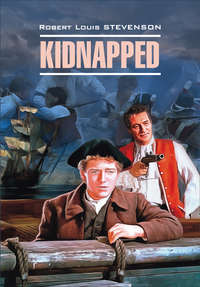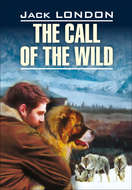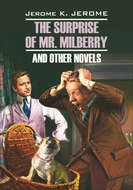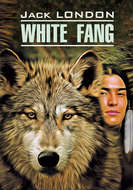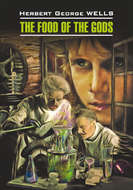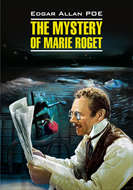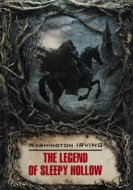Buch lesen: "Kidnapped / Похищенный. Книга для чтения на английском языке"
Подготовка текста, комментарии и словарь Д. В. Павлоцкого
© КАРО, 2016
Chapter I
I Set off Upon My Journey to the House of Shaws
I will begin the story of my adventures with a certain morning early in the month of June, the year of grace 1751, when I took the key for the last time out of the door of my father’s house. The sun began to shine upon the summit of the hills as I went down the road; and by the time I had come as far as the manse, the blackbirds were whistling in the garden lilacs, and the mist that hung around the valley in the time of the dawn was beginning to arise and die away.
Mr. Campbell, the minister of Essendean, was waiting for me by the garden gate, good man! He asked me if I had breakfasted; and hearing that I lacked for nothing, he took my hand in both of his and clapped it kindly under his arm.
‘Well, Davie, lad,’ said he, ‘I will go with you as far as the ford, to set you on the way.’ And we began to walk forward in silence.
‘Are ye sorry to leave Essendean?’ said he, after awhile.
‘Why, sir,’ said I, ‘if I knew where I was going, or what was likely to become of me, I would tell you candidly. Essendean is a good place indeed, and I have been very happy there; but then I have never been anywhere else. My father and mother, since they are both dead, I shall be no nearer to in Essendean than in the Kingdom of Hungary, and, to speak truth, if I thought I had a chance to better myself where I was going I would go with a good will.’
‘Ay?’ said Mr. Campbell. ‘Very well, Davie. Then it behoves me to tell your fortune; or so far as I may. When your mother was gone, and your father (the worthy, Christian man) began to sicken for his end, he gave me in charge a certain letter, which he said was your inheritance. “So soon,” says he, “as I am gone, and the house is redd up and the gear disposed of” (all which, Davie, hath been done), “give my boy this letter into his hand, and start him off to the house of Shaws, not far from Cramond. That is the place I came from,” he said, “and it’s where it befits that my boy should return. He is a steady lad,” your father said, “and a canny goer; and I doubt not he will come safe, and be well lived where he goes.’’’
‘The house of Shaws!’ I cried. ‘What had my poor father to do with the house of Shaws?’
‘Nay,’ said Mr. Campbell, ‘who can tell that for a surety?
But the name of that family, Davie, boy, is the name you bear – Balfours of Shaws: an ancient, honest, reputable house, peradventure in these latter days decayed. Your father, too, was a man of learning as befitted his position; no man more plausibly conducted school; nor had he the manner or the speech of a common dominie; all well-kenned1 gentlemen, had pleasure in his society. Lastly, to put all the elements of this affair before you, here is the testamentary letter itself, superscrived by the own hand of our departed brother.’
He gave me the letter, which was addressed in these words: ‘To the hands of Ebenezer Balfour, Esquire, of Shaws, in his house of Shaws, these will be delivered by my son, David Balfour.’ My heart was beating hard at this great prospect now suddenly opening before a lad of seventeen years of age, the son of a poor country dominie in the Forest of Ettrick.
‘Mr. Campbell,’ I stammered, ‘and if you were in my shoes, would you go?’
‘Of a surety,’ said the minister, ‘that would I, and without pause. If the worst came to the worst, and your high relations (as I cannot but suppose them to be somewhat of your blood) should put you to the door, ye can but walk the two days back again and risp at the manse door. But I would rather hope that ye shall be well received, as your poor father forecast for you, and for anything that I ken come to be a great man in time. And here, Davie, laddie2,’ he resumed, ‘it lies near upon my conscience to improve this parting, and set you on the right guard against the dangers of the world.’
There, then, with uplifted forefinger, he first put me on my guard against a considerable number of heresies, to which I had no temptation, and urged upon me to be instant in my prayers and reading of the Bible. That done, he drew a picture of the great house that I was bound to, and how I should conduct myself with its inhabitants.
‘Be soople, Davie, in things immaterial,’ said he. ‘Bear ye this in mind, that, though gentle born, ye have had a country rearing. Dinnae3 shame us, Davie, dinnae shame us! In yon4 great, muckle house, with all these domestics, upper and under, show yourself as nice, as circumspect, as quick at the conception, and as slow of speech as any. As for the laird5 – remember he’s the laird; I say no more: honour to whom honour. It’s a pleasure to obey a laird; or should be, to the young.’
‘Well, sir,’ said I, ‘it may be; and I’ll promise you I’ll try to make it so.’
‘Why, very well said,’ replied Mr. Campbell, heartily. ‘And now to come to the material, or (to make a quibble) to the immaterial. I have here a little packet which contains four things.’ He tugged it, as he spoke, and with some great difficulty, from the skirt pocket of his coat. ‘Of these four things, the first is your legal due: the little pickle money for your father’s books and plenishing. The other three are gifties that Mrs. Campbell and myself would be blithe of your acceptance. The first, which is round, will likely please ye best at the first off-go; but, O Davie, laddie, it’s but a drop of water in the sea; it’ll help you but a step, and vanish like the morning. The second, which is flat and square and written upon, will stand by you through life, like a good staff for the road, and a good pillow to your head in sickness. And as for the last, which is cubical, that’ll see you, it’s my prayerful wish, into a better land.’
With that he got upon his feet, took off his hat, and prayed a little while aloud; then suddenly took me in his arms and embraced me very hard; then held me at arm’s length, looking at me with his face all working with sorrow; and then whipped about, and crying good-bye to me, set off backward by the way that we had come at a sort of jogging run. Then it came in upon my mind that this was all his sorrow at my departure; and my conscience smote me hard and fast, because I, for my part, was overjoyed to get away out of that quiet country-side, and go to a great, busy house, among rich and respected gentlefolk of my own name and blood.
‘Davie, Davie,’ I thought, ‘was ever seen such black ingratitude? Can you forget old favours and old friends at the mere whistle of a name? Fie, fie; think shame.’
And I sat down and opened the parcel to see the nature of my gifts. That which he had called cubical, I had never had much doubt of; sure enough it was a little Bible. That which he had called round, I found to be a shilling piece; and the third, which was to help me so wonderfully both in health and sickness all the days of my life, was a little piece of coarse yellow paper, written upon thus in red ink:
‘TO MAKE LILLY OF THE VALLEY WATER. – Take the flowers of lilly of the valley and distil them in sack, and drink a spooneful or two as there is occasion. It restores speech to those that have the dumb palsey. It is good against the gout; it comforts the heart and strengthens the memory; it is good, ill or well, and whether man or woman.’
And then, in the minister’s own hand, was added: ‘Likewise for sprains, rub it in; and for the cholic, a great spooneful in the hour.’
To be sure, I laughed over this; but it was rather tremulous laughter; and I was glad to get my bundle on my staff ’s end and set out over the ford and up the hill upon the farther side; till, just as I came on the green drove-road running wide through the heather, I took my last look of Kirk Essendean, the trees about the manse, and the big rowans in the kirkyard where my father and my mother lay.
Chapter II
I Come to My Journey’s End
On the forenoon of the second day, coming to the top of a hill, I saw all the country fall away before me down to the sea; and in the midst of this descent, on a long ridge, the city of Edinburgh smoking like a kiln. There was a flag upon the castle, and ships moving or lying anchored in the firth; both of which, for as far away as they were, I could distinguish clearly; and both brought my country heart into my mouth.
Presently after, I came by a house where a shepherd lived, and got a rough direction for the neighbourhood of Cramond6. A little farther on I was told I was in Cramond parish, and began to substitute in my inquiries the name of the house of Shaws. It was a word that seemed to surprise those of whom I sought my way. At first I thought the plainness of my appearance, in my country habit, and that all dusty from the road, consorted ill with the greatness of the place to which I was bound. But after two, or maybe three, had given me the same look and the same answer, I began to take it in my head there was something strange about the Shaws itself.
I changed the form of my inquiries; and spying an honest fellow coming along a lane on the shaft of his cart, I asked him if he had ever heard tell of a house they called the house of Shaws.
‘What’ll like be your business, mannie7?’
‘I was led to think that I would get a situation,’ I said, looking as modest as I could.
‘What?’ cries the carter, in so sharp a note that his very horse started; and then, ‘Well, mannie,’ he added, ‘it’s nane of my affairs; but ye seem a decent-spoken lad; and if ye’ll take a word from me, ye’ll keep clear of the Shaws.’
The next person I came across was a dapper little man in a beautiful white wig, whom I saw to be a barber on his rounds; and knowing well that barbers were great gossips, I asked him plainly what sort of a man was Mr. Balfour of the Shaws.
‘Hoot, hoot, hoot,’ said the barber, ‘nae kind of a man, nae kind of a man at all’;
I cannot well describe the blow this dealt to my illusions. What kind of a great house was this or what sort of a gentleman? If an hour’s walking would have brought me back to Essendean, had left my adventure then and there, and returned to Mr. Campbell’s. But when I had come so far already, mere shame would not suffer me to desist till I had put the matter to the touch of proof; and little as I liked the sound of what I heard, I still kept asking my way and still kept advancing.
It was drawing on to sundown when I met a stout, dark, sour-looking woman coming trudging down a hill; and she, when I had put my usual question, turned sharp about, accompanied me back to the summit she had just left, and pointed to a great bulk of building standing very bare upon a green in the bottom of the next valley. The country was pleasant round about, running in low hills, pleasantly watered and wooded, and the crops, to my eyes, wonderfully good; but the house itself appeared to be a kind of ruin; no road led up to it; no smoke arose from any of the chimneys; nor was there any semblance of a garden. My heart sank.
‘That!’ I cried.
The woman’s face lit up with a malignant anger. ‘That is the house of Shaws!’ she cried. ‘Blood built it; blood stopped the building of it; blood shall bring it down. See here!’ she cried again – ‘I spit upon the ground, and crack my thumb at it! Black be its fall!’
And the woman, whose voice had risen to a kind of eldritch sing-song, turned with a skip, and was gone. I stood where she left me, with my hair on end. In those days folk still believed in witches and trembled at a curse; and this one took the pith out of my legs.
I sat me down and stared at the house of Shaws. The more I looked, the pleasanter that countryside appeared; and yet the barrack in the midst of it went sore against my fancy.
At last the sun went down, and then, right up against the yellow sky, I saw a scroll of smoke go mounting; there it was, and meant a fire, and warmth, and cookery, and some living inhabitant that must have lit it; and this comforted my heart. So I set forward by a little faint track in the grass that led in my direction.
The nearer I got to the house, the drearier it appeared. It seemed like the one wing of a house that had never been finished. What should have been the inner end stood open on the upper floors, and showed against the sky with steps and stairs of uncompleted masonry. Many of the windows were unglazed, and bats flew in and out like doves out of a dove-cote.
The night had begun to fall as I got close; and in three of the lower windows, which were very high up and narrow, and well-barred, the changing light of a little fire began to glimmer. I came forward cautiously, and giving ear as I came, heard someone rattling with dishes, and a little dry, eager cough that came in fits; but there was no sound of speech, and not a dog barked.
I lifted my hand with a faint heart under my jacket, and knocked once. Then I stood and waited. The house had fallen into a dead silence; a whole minute passed away, and nothing stirred but the bats overhead. Whoever was in that house kept deadly still, and must have held his breath.
I was in two minds whether to run away; but anger got the upper hand, and I began instead to rain kicks and buffets on the door, and to shout out aloud for Mr. Balfour. I was in full career, when I heard the cough right overhead, and jumping back and looking up, beheld a man’s head in a tall nightcap, and the bell mouth of a blunderbuss, at one of the first-storey windows.
‘It’s loaded,’ said a voice.
‘I have come here with a letter,’ I said, ‘to Mr. Ebenezer Balfour of Shaws. Is he here?’
‘Well,’ was the reply, ‘ye can put it down upon the doorstep, and be off with ye.’
‘I will do no such thing,’ I cried. ‘I will deliver it into Mr. Balfour’s hands, as it was meant I should. It is a letter of introduction.’
‘Who are ye, yourself?’ he asked, after a considerable pause.
‘I am not ashamed of my name,’ said I. ‘They call me David Balfour.’
At that, I made sure the man started, for I heard the blunderbuss rattle on the window-sill; and it was after quite a long pause, and with a curious change of voice, that the next question followed: ‘Is your father dead?’
I was so much surprised at this, that I could find no voice to answer, but stood staring.
‘Ay,’ the man resumed, ‘he’ll be dead, no doubt; and that’ll be what brings ye chapping to my door.’ Another pause, and then defiantly, ‘Well, man,’ he said, ‘I’ll let ye in;’ and he disappeared from the window.
Chapter III
I Make Acquaintance of My Uncle
Presently there came a great rattling of chains and bolts, and the door was cautiously opened and shut to again behind me as soon as I had passed.
‘Go into the kitchen and touch naething8,’ said the voice; and while the person of the house set himself to replacing the defences of the door, I groped my way forward and entered the kitchen.
As soon as the last chain was up, the man rejoined me. He was a mean, stooping, narrow-shouldered, clay-faced creature; and his age might have been anything between fifty and seventy. His nightcap was of flannel, and so was the nightgown that he wore, instead of coat and waistcoat, over his ragged shirt. He was long unshaved; but what most distressed and even daunted me, he would neither take his eyes away from me nor look me fairly in the face. What he was, whether by trade or birth, was more than I could fathom; but he seemed most like an old, unprofitable serving-man, who should have been left in charge of that big house upon board wages.
‘Are ye sharp-set?’ he asked, glancing at about the level of my knee. ‘Ye can eat that drop parritch9?’
I said I feared it was his own supper.
‘O,’ said he, ‘I can do fine wanting it. I’ll take the ale, though, for it slockens my cough.’ He drank the cup about half out, still keeping an eye upon me as he drank; and then suddenly held out his hand. ‘Let’s see the letter,’ said he.
I told him the letter was for Mr. Balfour; not for him. ‘And who do ye think I am?’ says he. ‘Give me Alexander’s letter.’
‘You know my father’s name?’
‘It would be strange if I didnae,’ he returned, ‘for he was my born brother; and little as ye seem to like either me or my house, or my good parritch, I’m your born uncle, Davie, my man, and you my born nephew. So give us the letter, and sit down and fill your kyte.’
I sat down to the porridge with as little appetite for meat as ever a young man had. Meanwhile, my uncle, stooping over the fire, turned the letter over and over in his hands.
‘Do ye ken what’s in it?’ he asked, suddenly.
‘You see for yourself, sir,’ said I, ‘that the seal has not been broken.’
‘Ay,’ said he, ‘but what brought you here?’
‘To give the letter,’ said I.
‘No,’ says he, cunningly, ‘but ye’ll have had some hopes, nae doubt?’
‘I confess, sir,’ said I, ‘when I was told that I had kinsfolk well-to-do, I did indeed indulge the hope that they might help me in my life. But I am no beggar; I look for no favours at your hands, and I want none that are not freely given. For as poor as I appear, I have friends of my own that will be blithe to help me.’
‘Hoot-toot!’ said Uncle Ebenezer, ‘dinnae fly up in the snuff at me. We’ll agree fine yet. And, Davie, my man, if you’re done with that bit parritch, I could just take a sup of it myself. Ay,’ he continued, as soon as he had ousted me from the stool and spoon, ‘they’re fine, halesome10 food – they’re grand food, parritch. Your father was very fond of his meat, I mind; he was a hearty, if not a great eater; but as for me, I could never do mair11 than pyke at food.’
He continued to eat like a man under some pressure of time, and to throw out little darting glances now at my shoes and now at my home-spun stockings. Once only, when he had ventured to look a little higher, our eyes met; and no thief taken with a hand in a man’s pocket could have shown more lively signals of distress. This set me in a muse, whether his timidity arose from too long a disuse of any human company; and whether perhaps, upon a little trial, it might pass off, and my uncle change into an altogether different man. From this I was awakened by his sharp voice.
‘Your father’s been long dead?’ he asked.
‘Three weeks, sir,’ said I.
‘He was a secret man, Alexander – a secret, silent man,’ he continued. ‘He never said muckle when he was young. He’ll never have spoken muckle of me?’
‘I never knew, sir, till you told it me yourself, that he had any brother.’
‘Dear me, dear me!’ said Ebenezer. ‘Nor yet of Shaws, I dare say?’
‘Not so much as the name, sir,’ said I.
‘To think o’ that!’ said he. ‘A strange nature of a man!’ For all that, he seemed singularly satisfied, but whether with himself, or me, or with this conduct of my father’s, was more than I could read. Certainly, however, he seemed to be outgrowing that distaste, or ill-will, that he had conceived at first against my person; for presently he jumped up, came across the room behind me, and hit me a smack upon the shoulder. ‘We’ll agree fine yet!’ he cried. ‘I’m just as glad I let you in. And now come awa’ to your bed.’
To my surprise, he lit no lamp or candle, but set forth into the dark passage up a flight of steps, and paused before a door, which he unlocked. He bade me go in, for that was my chamber. I did as he bid, but paused after a few steps, and begged a light to go to bed with.
‘Hoot-toot!’ said Uncle Ebenezer, ‘there’s a fine moon.’
‘Neither moon nor star, sir, and pit-mirk12,’ said I. ‘I cannae see the bed.’
‘Hoot-toot, hoot-toot!’ said he. ‘Lights in a house is a thing I dinnae agree with. I’m unco feared of fires. Good-night to ye, Davie, my man.’ And before I had time to add a further protest, he pulled the door to, and I heard him lock me in from the outside.
With the first peep of day I opened my eyes, to find myself in a great chamber, hung with stamped leather, furnished with fine embroidered furniture, and lit by three fair windows. Ten years ago it must have been as pleasant a room to lie down or to awake in as a man could wish; but damp, dirt, disuse, and the mice and spiders had done their worst since then; and being very cold in that miserable room, I knocked and shouted till my gaoler came and let me out. He carried me to the back of the house, where was a draw-well, and told me to ‘wash my face there, if I wanted;’ and when that was done, I made the best of my own way back to the kitchen, where he had lit the fire and was making the porridge.
When we had made an end of our meal, my uncle sat down in the sun at one of the windows and silently smoked. From time to time his eyes came coasting round to me, and he shot out one of his questions. Once it was, ‘And your mother?’ and when I had told him that she, too, was dead, ‘Ay, she was a bonnie lassie13!’ Then, after another long pause, ‘Whae14 were these friends o’ yours?’ I told him they were different gentlemen of the name of Campbell; though, indeed, there was only one, and that the minister, that had ever taken the least note of me; but I began to think my uncle made too light of my position, and finding myself all alone with him, I did not wish him to suppose me helpless.
He seemed to turn this over in his mind; and then, ‘Davie, my man,’ said he, ‘ye’ve come to the right bit when ye came to your uncle Ebenezer. I’ve a great notion of the family, and I mean to do the right by you; but while I’m taking a bit think to mysel’ of what’s the best thing to put you to – whether the law, or the meenistry, or maybe the army, whilk15 is what boys are fondest of – I wouldnae like the Balfours to be humbled before a wheen16 Hieland Campbells, and I’ll ask you to keep your tongue within your teeth. Nae letters; nae messages; no kind of word to onybody; or else – there’s my door.’
‘Uncle Ebenezer,’ said I, ‘I’ve no manner of reason to suppose you mean anything but well by me. For all that, I would have you to know that I have a pride of my own. It was by no will of mine that I came seeking you; and if you show me your door again, I’ll take you at the word.’
He seemed grievously put out. ‘Hoots-toots,’ said he, ‘ca’ cannie, man – ca’ cannie! Just you give me a day or two, and say naething to naebody, and as sure as sure, I’ll do the right by you.’
‘Very well,’ said I, ‘enough said. If you want to help me, there’s no doubt but I’ll be glad of it, and none but I’ll be grateful.’
It seemed to me (too soon, I dare say) that I was getting the upper hand of my uncle; and I began next to say that I must have the bed and bedclothes aired and put to sun-dry; for nothing would make me sleep in such a pickle.
‘Is this my house or yours?’ said he, in his keen voice, and then all of a sudden broke off. ‘Na, na,’ said he, ‘I didnae mean that. What’s mine is yours, Davie, my man, and what’s yours is mine. Blood’s thicker than water; and there’s naebody but you and me that ought the name.’ And then on he rambled about the family, and its ancient greatness, and his father that began to enlarge the house, and himself that stopped the building as a sinful waste.
‘I’ll aff17 and see the session clerk,’ uncle said in the end. He was for setting out, when a thought arrested him. ‘I cannae leave you by yoursel’ in the house,’ said he. ‘I’ll have to lock you out.’ The blood came to my face. ‘If you lock me out,’ I said, ‘it’ll be the last you’ll see of me in friendship.’
Uncle Ebenezer turned very pale, and sucked his mouth in. He went and looked out of the window for awhile. I could see him all trembling and twitching, like a man with palsy. But when he turned round, he had a smile upon his face.
‘Well, well,’ said he, ‘we must bear and forbear. I’ll no go; that’s all that’s to be said of it.’
‘Uncle Ebenezer,’ I said, ‘I can make nothing out of this. You use me like a thief; you hate to have me in this house. Why do you seek to keep me, then? Let me gang back to the friends I have, and that like me!’
‘Na, na; na, na,’ he said, very earnestly. ‘I like you fine; and for the honour of the house I couldnae let you leave the way ye came. Just you bide here quiet a bittie18, and ye’ll find that we agree.’
‘Well, sir,’ said I, after I had thought the matter out in silence, ‘I’ll stay awhile. It’s more just I should be helped by my own blood than strangers; and if we don’t agree, I’ll do my best it shall be through no fault of mine.’
